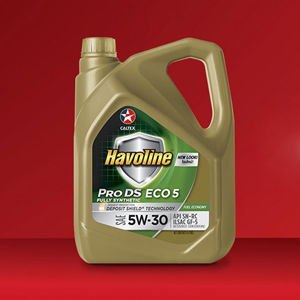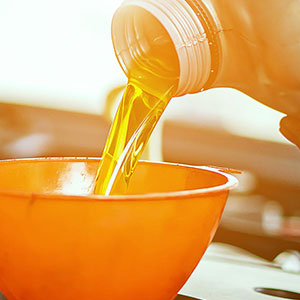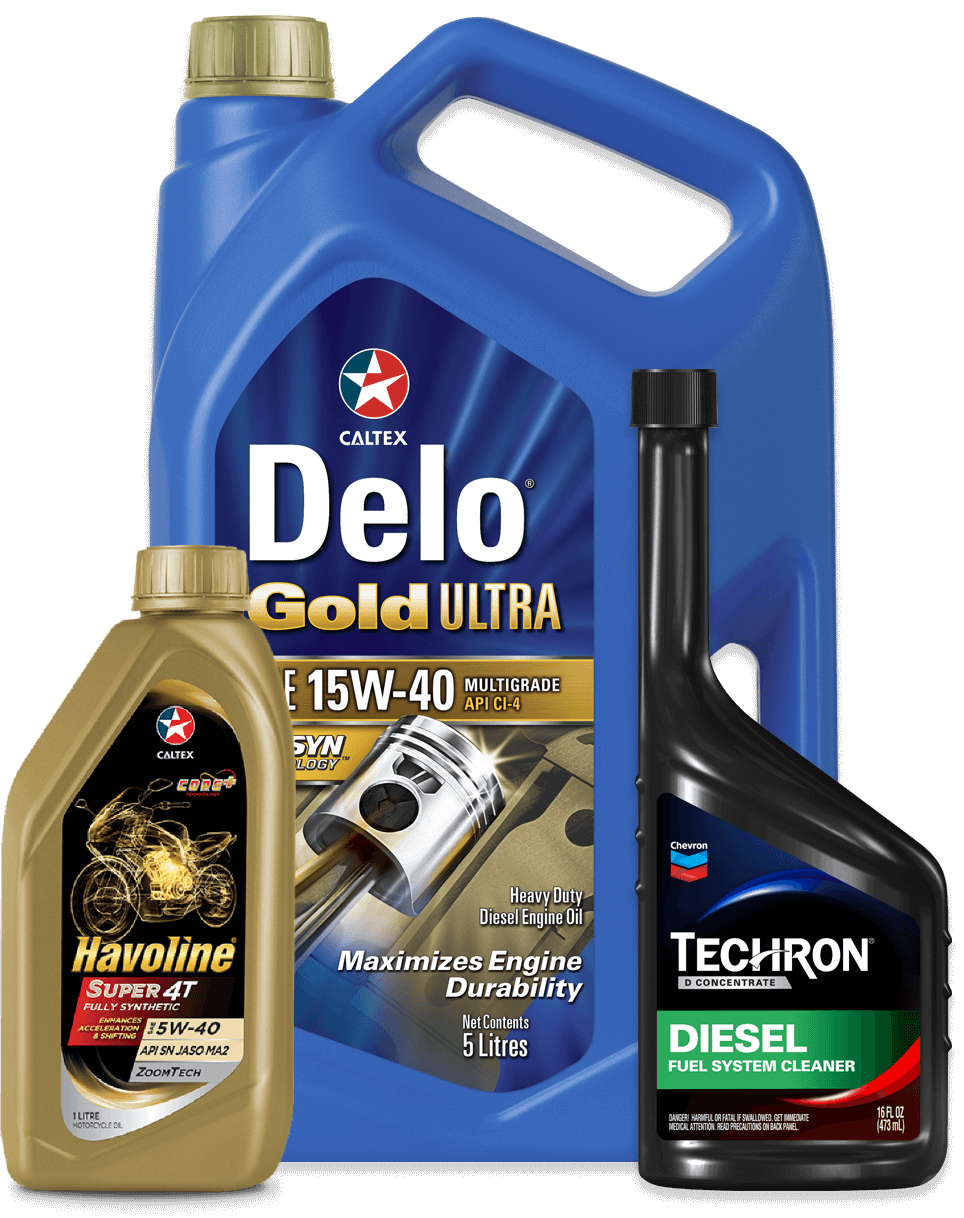A common question that we get asked by our clients in agriculture, construction and marine industries is whether they should be using demulsifying or emulsifying lubricants for their hydraulic systems. As with most lubrication concerns, the answer largely depends on your operating environment, application and recommendations from the Original Equipment Manufacturer (OEM).
For those readers who might not know exactly what the difference is, a demulsifying basically helps separate oil and water which results in two layers since water is denser compared to oil. Emulsifying oil, on the other hand promotes a stable arrangement between the oil and water molecules with the help of certain additives.
Depending on the operating environment and temperature, water enters the hydraulic systems and the changes in temperature causes condensation. Basically, equipment that has been running hot during the course of the day will cool down once it is shut down. This means that it will breathe in moisture when the air gets cooler. In absence of sufficient heat, the moisture will fail to vaporize and hence condense into the oil reservoir.
Depending on the application, emulsifying oil can have particular advantages compared to demulsifying oil. The lubricant can help prevent oil from collecting at the bottom of the oil reservoir. You want to prevent this from happening because water may freeze there and cause problems such as rust, filter interference or bacteria growth.
Emulsifying oil greatly reduces the contact between metallic parts and water, mitigating risks of rust. However, this can also negatively impact the oil’s performance by making it vulnerable to overheating and sluggish. Oxidation caused by the water can also cause the oil to degrade much quicker.
Generally, tractor hydraulic fluids will have dispersant agents to carry contaminants to the system filters for removal. These dispersant agents are emulsifying. Alternatively, operators may find demulsifying oils work better for industrial equipment with a mechanism for draining the water and larger reservoirs.
If you’re operating in a dry environment, water may not be as big of an issue. However, if your equipment is exposed to high levels of humidity, the need to address water contamination risk is much greater. The general rule is that an oil change is recommended if water level reaches .05% or above. About 600ppm water can cause serious harm to your equipment.
Therefore, it is ideal for operators to look towards removing water from the hydraulic systems. If the equipment has something like a petcock drain valve, then you can drain the water from the bottom of the oil reservoir and so you would be better off using demulsifying oil. Some other water drainage methods could include using coalescers, vacuum dehydrators, absorbent filters or centrifuges.
However, if you do not have any means of removing water from the hydraulic systems, emulsifying oil will help prevent water from pooling at the bottom of the reservoir. Finally, you should also check for OEM recommendations on your specific unit for further guidance.
A common question that we get asked by our clients in agriculture, construction and marine industries is whether they should be using demulsifying or emulsifying lubricants for their hydraulic systems. As with most lubrication concerns, the answer largely depends on your operating environment, application and recommendations from the Original Equipment Manufacturer (OEM).
For those readers who might not know exactly what the difference is, a demulsifying basically helps separate oil and water which results in two layers since water is denser compared to oil. Emulsifying oil, on the other hand promotes a stable arrangement between the oil and water molecules with the help of certain additives.
Depending on the operating environment and temperature, water enters the hydraulic systems and the changes in temperature causes condensation. Basically, equipment that has been running hot during the course of the day will cool down once it is shut down. This means that it will breathe in moisture when the air gets cooler. In absence of sufficient heat, the moisture will fail to vaporize and hence condense into the oil reservoir.
Depending on the application, emulsifying oil can have particular advantages compared to demulsifying oil. The lubricant can help prevent oil from collecting at the bottom of the oil reservoir. You want to prevent this from happening because water may freeze there and cause problems such as rust, filter interference or bacteria growth.
Emulsifying oil greatly reduces the contact between metallic parts and water, mitigating risks of rust. However, this can also negatively impact the oil’s performance by making it vulnerable to overheating and sluggish. Oxidation caused by the water can also cause the oil to degrade much quicker.
Generally, tractor hydraulic fluids will have dispersant agents to carry contaminants to the system filters for removal. These dispersant agents are emulsifying. Alternatively, operators may find demulsifying oils work better for industrial equipment with a mechanism for draining the water and larger reservoirs.
If you’re operating in a dry environment, water may not be as big of an issue. However, if your equipment is exposed to high levels of humidity, the need to address water contamination risk is much greater. The general rule is that an oil change is recommended if water level reaches .05% or above. About 600ppm water can cause serious harm to your equipment.
Therefore, it is ideal for operators to look towards removing water from the hydraulic systems. If the equipment has something like a petcock drain valve, then you can drain the water from the bottom of the oil reservoir and so you would be better off using demulsifying oil. Some other water drainage methods could include using coalescers, vacuum dehydrators, absorbent filters or centrifuges.
However, if you do not have any means of removing water from the hydraulic systems, emulsifying oil will help prevent water from pooling at the bottom of the reservoir. Finally, you should also check for OEM recommendations on your specific unit for further guidance.

About Author
With over 35 years in the oil and gas industry, Dan Holdmeyer has worked for Chevron the past 14 years, serving in a variety of capacities with the company in addition to his current post as Industrial and Coolants Brand Manager where he works as a lubrication engineer that supports Chevron Delo and other related lubricants brands. He plays an integral role in supporting and managing a variety of programs related to off-highway and on-highway lubrication needs. Dan also works as Chevron’s Training Specialist for their Global Lubricants division since joining the company. Prior to joining Chevron, Dan worked as a Field Engineer at Mobil Oil Corporation for 20 years (1979-99) after graduating from the University of Missouri-Columbia with a Bachelor of Science in Chemical Engineering.
ARTICLES FOR YOU
ARTICLES FOR YOU

Trends in Passenger Car Motor Oils: Evolving Engine Technology Driving Change

GM’s dexos1™ PCMO Specification Knowledge

How Synthetic Oils Are Helping Cars Last Longer

Synthetic Oils Are The Wave Of The Future For Passenger Cars
Need more assistance?
Begin your journey towards world class products and services with Caltex.














